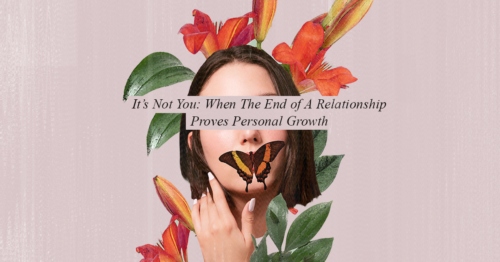Notes on “becoming” from my 27-year-old self to my post-graduation self
At the age of 20, I graduated from university. For four years, I studied to be a graphic designer at a beautiful campus in Katipunan. By graduation, I was well-aware of a verily inconvenient truth: I could not design for the life of me—yet can appreciate good design when I see it. Still, I persisted.
After a month-long break, I set to find my first job with JobStreet and LinkedIn as my bible. I sent out roughly 30 e-mails to possible employers; attached were my vivid résumé created on Adobe InDesign and an overly perky—almost desperate—cover letter. I had very few responses and requests for interviews. I remember entering sketchy townhouses, cramped bodegas and rowdy preschools in the middle of nowhere (don’t ask) hoping, but holding everything loosely because I did not want to have my heart broken again. I failed practical exams and would go home crying in taxi cabs, knowing that I was set to receive another rejection e-mail or text message.
Almost a year passed. After countless interviews, gut-wrenching almosts and not yets, emotional breakdowns followed by desolate prayers, at 21, I had my first (corporate) job as the official photographer of a TV network. After all, every rejection is a redirection. My job entailed going to far-flung areas, sometimes out of town and other times in restaurants a few blocks away— wherever artistas camped out—and just shoot. There were nights when I wouldn’t go home, days when I would go back to the office just in time for our morning show. “Pack up!” were the most glorious words ever muttered. In the comforts of my air-conditioned, well-lit university library perusing another Philosophy reading, this was far from my reality. These were the longest four years of my life and I've certainly grown.
RELATED: Does Doing What You Love Mean Never Working a Day in Your Life?
Take your time, but be accountable.
In the beginning, you will be riddled with questions. The answer is simple: you can’t have everything figured out. A good education—even hand-picked for the crème de la crème—does not guarantee a job (immediately.) I completed two internships while shooting on weekends and maintaining average grades (forever a B student.) I filled my CV every chance I could, yet it took me a year to land a job.
This isn’t to dissuade one from applying to companies. It’s simply a difficult truth that no one prepares you for in university. Don’t pride yourself too much in personal academic and extracurricular triumphs to the point of entitlement—that you feel utterly indispensable.
Do take your time but also actively seek out your next step. Consider a well-deserved break to be with family, complete your Master’s Program, or grow your skillset. Just actually do something. There’s only so much that wallowing in self-pity can do. Passivity sometimes disguises itself as endless self-exploration; know the difference. Do not discount accountability; make decisions and grow.
Know when to leave work behind.
For the first year or so, I took pride in the fact that I would stay after standard working hours to finish all my desk work, especially when I’ve been out in coverages the entire day. I felt that this measured my devotion to the company. It sure is *honorable* but then I realized I needed to learn how to separate my work life from my personal life—or I would lose my sanity.
If you have a bad day in the office—caused by an inevitable conflict with a colleague or a public screw-up—don’t let it define your day and your person. There will be days when you will be so desensitized with work and feel that you are on a standstill. Persist and know when to detach yourself from the results of work. A difference in perspective can always change how you look at the work that is set for you to do now.
RELATED: Why Does Everyone Romanticize OT?
Have a passion project.
You do work you’re proud of. You do work to pay the bills. There is a time and season for everything.
The best way I could keep my sanity—aside from prayer and my daily Starbucks Barista Drink—was to have a passion project. Having a creative outlet like a personal blog did heaps for my mental health. This was a space I would look forward to every night after my 9-hour corporate job and on weekends when I could tend to it more.
My passion project fulfilled me since I was not pressured to incentivize it; my income did not depend on it. This made me feel in control since I had my own time and my own rules. It was liberating. If people paid attention to what I was creating, it was simply an added bonus. Tend to it and you might just consider using these newfound skills and interests to shape your next career move.
RELATED: An Introvert's Guide to Growing Your Influence
Art Alexandra Lara


















